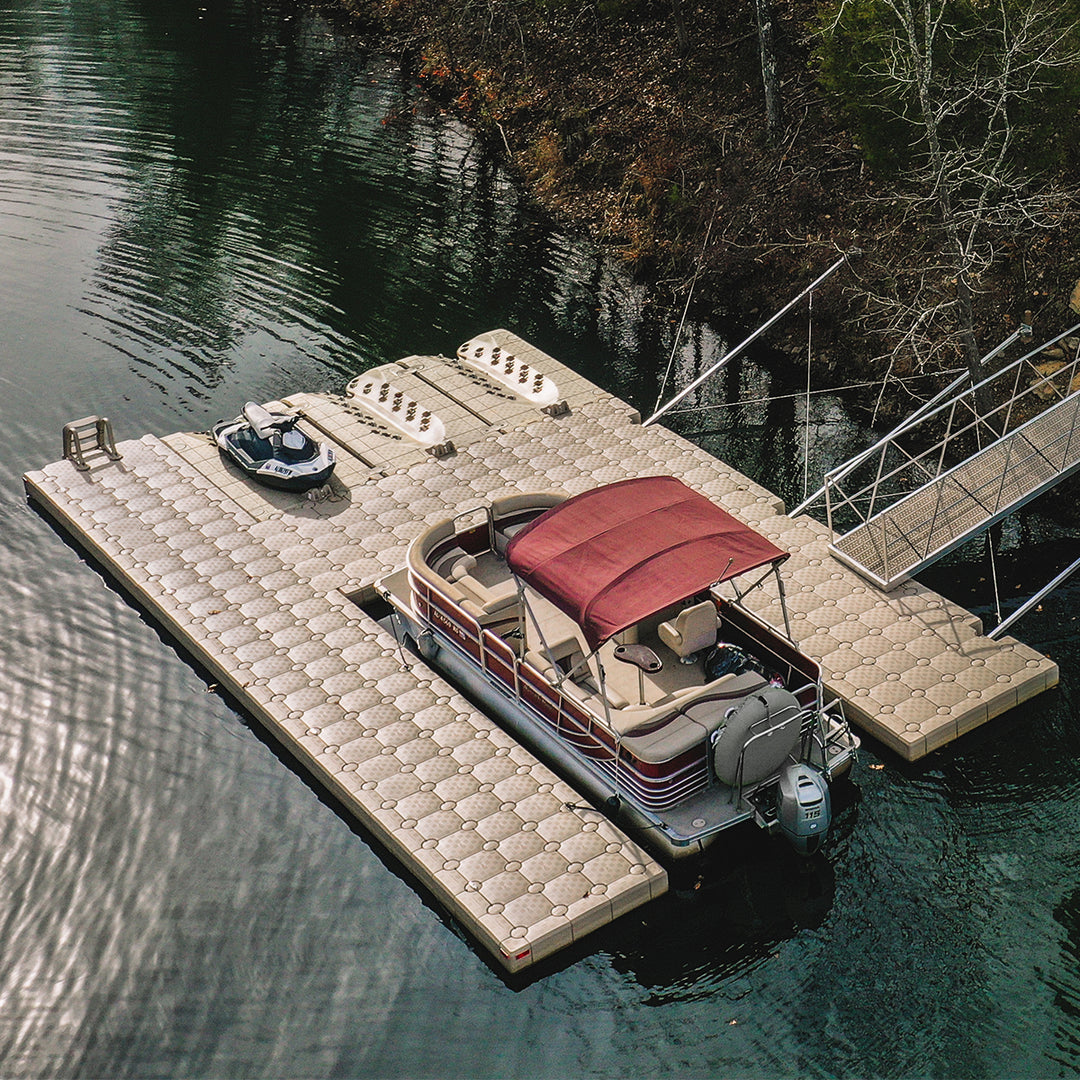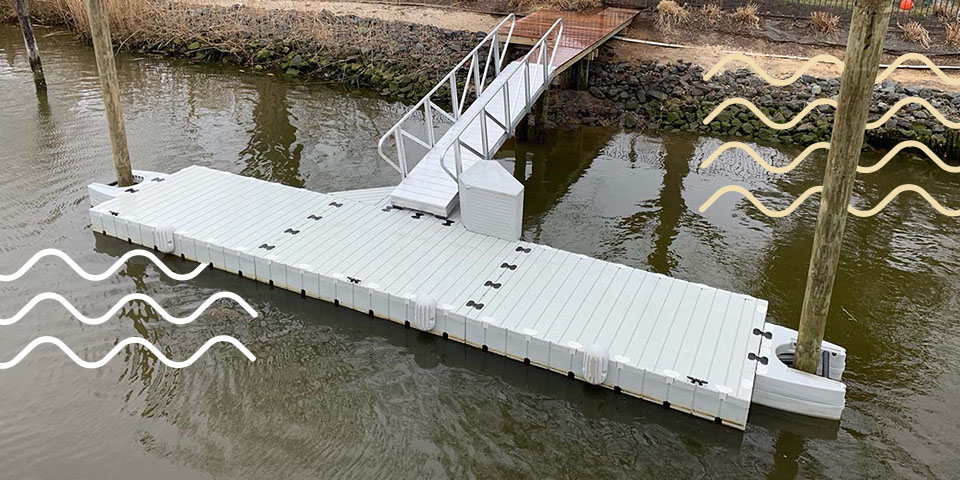Ingenious Floating Docks: The Future of Waterfront Access and Recreation
Ingenious Floating Docks: The Future of Waterfront Access and Recreation
Blog Article
Floating Docks: The Suitable Choice for Versatile Water Access
Floating docks present a compelling service for a selection of water accessibility requires, providing flexibility that transcends standard mooring choices. Their ability to adapt to fluctuating water levels while ensuring security and safety makes them particularly helpful for both business and recreational applications. The modular nature of floating docks assists in personalization, providing to certain demands. The subtleties of installation and maintenance, together with the variety of applications, necessitate a closer examination to fully appreciate their potential advantages and implications for waterway gain access to strategies.
Benefits of Floating Docks
Floating docks deal numerous benefits that improve water access for different applications. Their capability to fall and increase with altering water degrees makes them specifically advantageous in environments with changing trends or seasonal variants. This adaptability makes sure that vessels can quickly tie without worry for the water's depth, supplying a trustworthy system for leisure, commercial, and industrial usages.
Furthermore, floating docks are often built from long lasting products that withstand rust, making them appropriate for lasting use in marine environments. Their installation is generally much less invasive than traditional fixed docks, minimizing the ecological influence and helping with quicker release (floating dock company). This adaptability permits less complicated moving or reconfiguration according to customer demands or environmental adjustments
Safety is an additional essential benefit; floating docks can supply stable gain access to for people getting off or boarding from boats and reduce the risk of mishaps related to unstable surface areas. Additionally, they can be created to suit a selection of devices, such as cleats and fenders, improving performance. Generally, floating docks stand for an efficient service for improving water gain access to across varied markets while advertising safety and ecological sustainability.

Kinds of Floating Docks
Numerous types of floating docks accommodate various needs and settings, each created with certain attributes to enhance functionality. One of the most typical kinds consist of modular docks, which contain interlocking sections that permit simple personalization and expansion. These docks are optimal for recreational usage, as they can be tailored to fit different boat sizes and water problems.
An additional popular option is the fixed floating dock, which stays secured in position however floats with altering water degrees. floating dock company. This type is especially suited for locations with minimal tidal fluctuations, giving stable gain access to for fishing or swimming. In addition, there are drive-on docks, which feature a sloped design that enables watercrafts to easily drive on and off, making them suitable for individual boat and smaller sized vessels
For business applications, sturdy floating docks are readily available, created from enhanced materials to endure substantial lots and harsh marine settings. Last but not least, green floating docks use sustainable materials and styles to reduce ecological influence, usually incorporating attributes like vegetation to support regional wildlife. Comprehending the various kinds of floating docks ensures that individuals can choose the most ideal remedy for their certain requirements.
Installment Refine Overview
A successful installment of floating docks needs cautious preparation and focus to detail to guarantee ideal performance and safety and security. The preliminary step entails analyzing the site problems, including water deepness, present, and possible challenges. This evaluation educates the choice of the proper dock products and design tailored to the specific setting.
Next, obtaining essential authorizations is crucial, as lots of territories have guidelines regarding building on water bodies. When consents are secured, the setup can proceed. Begin by preparing the foundation, which may involve anchoring systems or pilings customized to the dock type and local problems.
Adhering to the structure arrangement, put together the dock areas according to maker specs. Make certain that all parts are firmly fastened and lined up to stand up to ecological anxieties. Setting the dock in the marked area, ensuring it is degree and steady.

Maintenance Tips and Finest Practices
After the installation procedure is full, recurring maintenance plays an essential function in ensuring the durability and capability of floating docks. Routine evaluations ought to be carried out to determine any signs of wear, deterioration, or damage - floating dock company. Look for any loose installations, splits, or splitting up visit this site right here in the dock sections, as these can endanger architectural integrity
Cleaning the dock is important to remove particles, algae, and other build-up that can impact its look and safety. Make use of a mild pressure clean regularly to preserve cleanliness without triggering damages to the surface. In addition, applying a safety sealer every couple of years can aid enhance long life and withstand environmental wear.
Take notice of the mooring lines and supports, ensuring they are secure and totally free from rust. Replace any abject components immediately to avoid dangers. Seasonal adjustments may additionally be necessary; throughout severe climate condition, repositioning or enhancing the dock can protect against damage.
Applications for Floating Docks
Floating docks offer a wide variety of applications, catering to both industrial and recreational requirements. In recreational settings, they provide seamless access to waterways for tasks such as boating, fishing, and swimming. Their adjustable nature permits installation in differing water levels, making certain steady and risk-free accessibility despite tidal fluctuations.
Readily, floating docks are important for marinas and waterside companies. They assist in the docking of vessels, enabling efficient discharging and filling of items. Their modular design permits easy expansion or reconfiguration to fit transforming service needs, making them optimal for watercraft leasings, scenic tour procedures, or fishing charters.
Furthermore, floating docks are used in environmental applications such as marine research and environment reconstruction. They can function as systems for clinical studies, keeping track of water high quality, or conducting wild animals studies without troubling sensitive ecosystems.
In industrial contexts, floating docks are used in building and construction tasks, providing accessibility to hard-to-reach locations for equipment and personnel. Their flexibility, durability, and marginal influence on the atmosphere make them an optimum option for a vast variety of applications, improving both functionality and accessibility in different water-based settings.
Conclusion
In verdict, floating docks stand for an optimal solution for diverse water accessibility needs, owing to their versatility, durability, and modular layout. Floating docks serve as an important property for leisure, commercial, and ecological jobs, making certain trustworthy accessibility to waterways and promoting sustainable methods in water settings.
Floating docks present a compelling remedy for a these details range of water accessibility requires, additional reading using convenience that goes beyond standard mooring choices.Floating docks offer numerous benefits that boost water access for various applications. Overall, floating docks represent a reliable remedy for improving water gain access to throughout diverse sectors while advertising security and ecological sustainability.
Another prominent alternative is the stationary floating dock, which remains anchored in area however drifts with altering water degrees.In final thought, floating docks stand for an optimal remedy for varied water gain access to needs, owing to their adaptability, resilience, and modular style.
Report this page